|
Can an employer forfeit the gratuity payable to an employee terminated on the grounds of sexual harassment of a woman?
YES. Under the Payment of Gratuity Act 1972, an employer must pay gratuity to an employee who has completed at least five years of continuous service with the company. Sexual harassment can be considered a form of moral turpitude. On the ground of moral turpitude, in the above case, the gratuity payable to the employee may be forfeited. Moral turpitude refers to conduct contrary to the accepted rules of morality and involves dishonesty, fraud, or other forms of depravity.
0 Comments
The aggrieved woman requested the Internal Committee (IC) of POSH to allow Advocate to represent in the inquiry process. Is this valid?
→NO. →As per the POSH Act, 2013, both the parties to the complaint are not permitted to bring their Advocates/Legal Practitioners to participate in the IC Inquiry Process. The Company formed the Internal Complaints Committee (ICC) to meet the requirements of the POSH Act - 2013, but it did not include an external member. In this situation, is the committee valid?
NO. As per the POSH Act of 2013, every ICC must include at least one external member who is not associated with the organization or does not work in the same industry. A supervisor complains to HR that one of the female team members is often idle in her workstation without performing the assigned tasks. HR asked him to provide proof for the same. To provide evidence, the supervisor took a photo of the female team member while she was not working at her workstation. The female team member objected to the supervisor's act and reported as sexual harassment to the IC. Is it valid?
→The complaint is not valid as the POSH Act, 2013 defines sexual harassment as any unwelcome physical, verbal, or non-verbal conduct of a sexual nature that could create an intimidating, hostile, or offensive work environment. →The points because the complaint is not valid are:
Can ICC forward sexual harassment complaint to the police without the consent of the aggrieved woman?
→No. →Under the POSH Act, 2013, the Internal Complaints Committee (ICC) cannot forward a complaint of sexual harassment to the police without the consent of the aggrieved woman. →The ICC is responsible for investigating complaints of sexual harassment and making recommendations for appropriate action within the organization. →The ICC may refer a complaint to the police when a settlement has been agreed upon between the parties, but the respondent has failed to comply with the settlement terms. →It is important to respect the confidentiality and privacy of the aggrieved woman during the ICC's proceedings and to ensure that her consent is obtained before taking any further action. The HR manager tells the aggrieved woman not to complain to the ICC about sexual harassment and that he will handle it. Is it valid?
No. It is not valid for the HR Manager to tell an aggrieved woman not to give a complaint to the Internal Complaints Committee (ICC) and that he will handle it himself.
Source:
Handbook on Sexual Harassment of Women at Workplace (Prevention, Prohibition and Redressal) Act 2013 Government of India Ministry of Women and Child Development November 2015 Does a male colleague shouting angrily at a female constitute sexual harassment?
No. Shouting in anger at a woman by a male colleague may not be covered under sexual harassment, unless the shouting is accompanied by behavior that is sexually explicit, unwelcome, or creates a hostile work environment. Sexual harassment is defined in the POSH Act of 2013 as unwelcome sexual conduct, which could be verbal, non-verbal, or physical. What is Quid Pro Quo?
In the context of sexual harassment, quid pro quo refers to a situation in which a person in a position of authority, such as a supervisor or manager, demands sexual favors from a subordinate in exchange for job benefits or protection from negative job consequences. Does a company visitor who is sexually harassed fall under the scope of sexual harassment under the POSH Act, 2013?
YES A married female colleague congratulated the boss on his promotion through a WhatsApp message. He expressed his happiness in reply with heart emoji ❤️. Can this act of the boss be considered sexual harassment under the Sexual Harassment of Women at Workplace (Prevention, Prohibition and Redress) Act, 2013 (POSH Act)?
Under the POSH act, the described action is unlikely to be considered sexual harassment. |
Categories
All
Prevention of Sexual Harassment at Workplace (PoSH)50,000 HR PROFESSIONALS ARE CONNECTED THROUGH OUR NIRATHANKA HR GROUPS.
YOU CAN ALSO JOIN AND PARTICIPATE IN OUR GROUP DISCUSSIONS. |
||||||

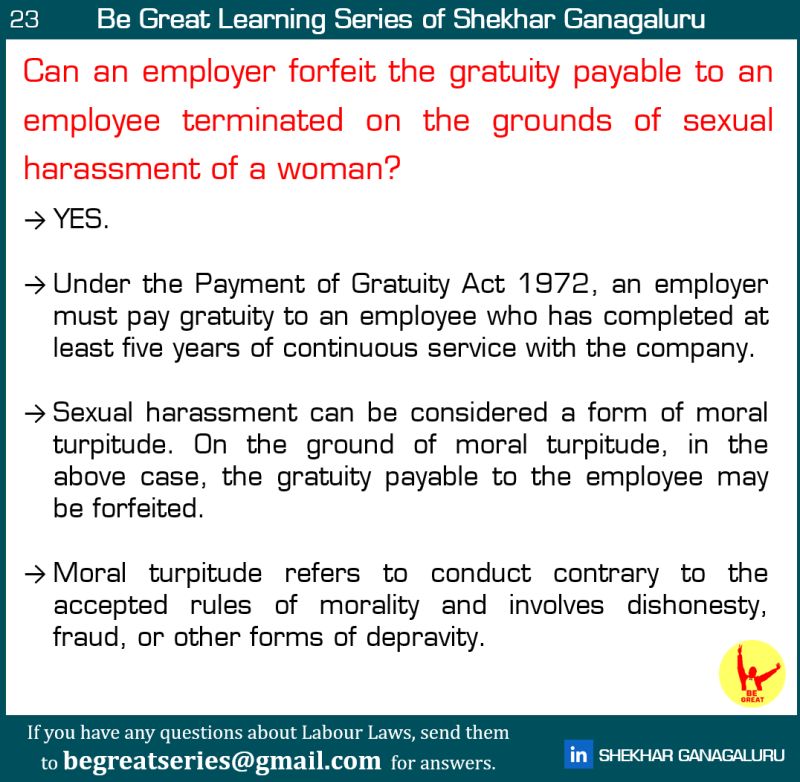
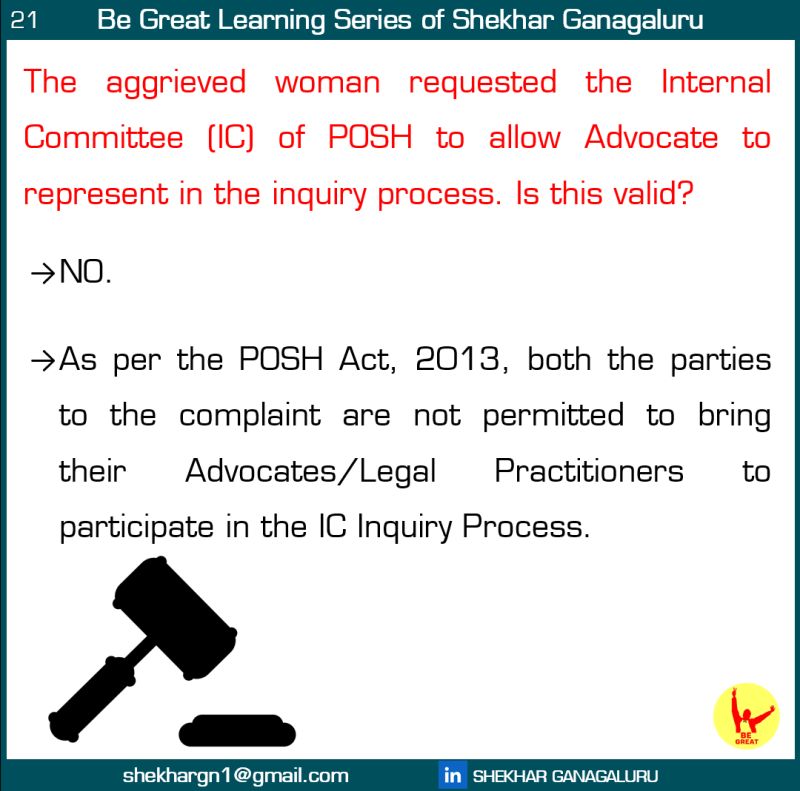
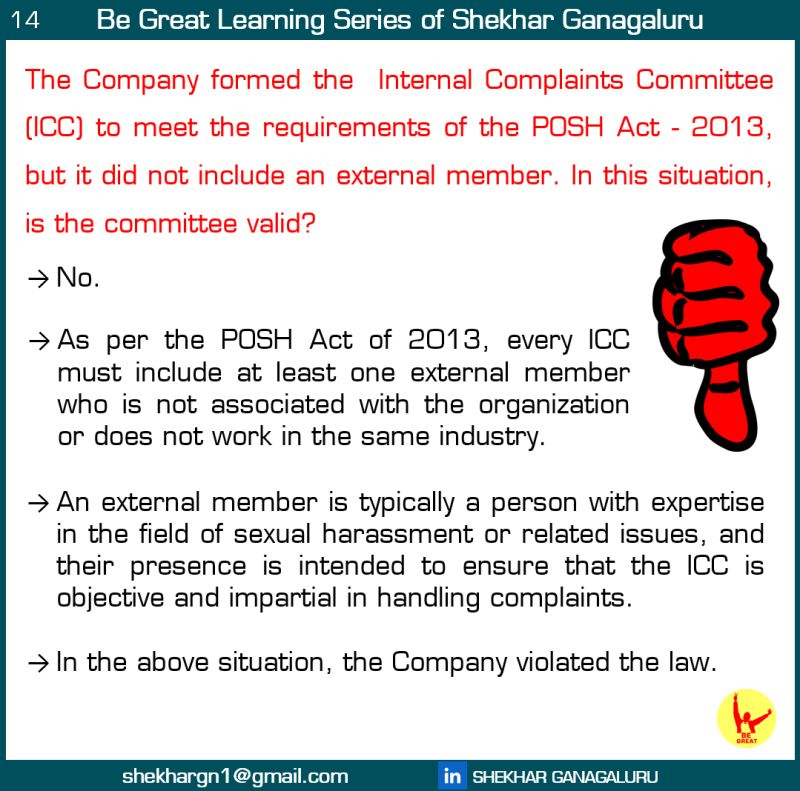

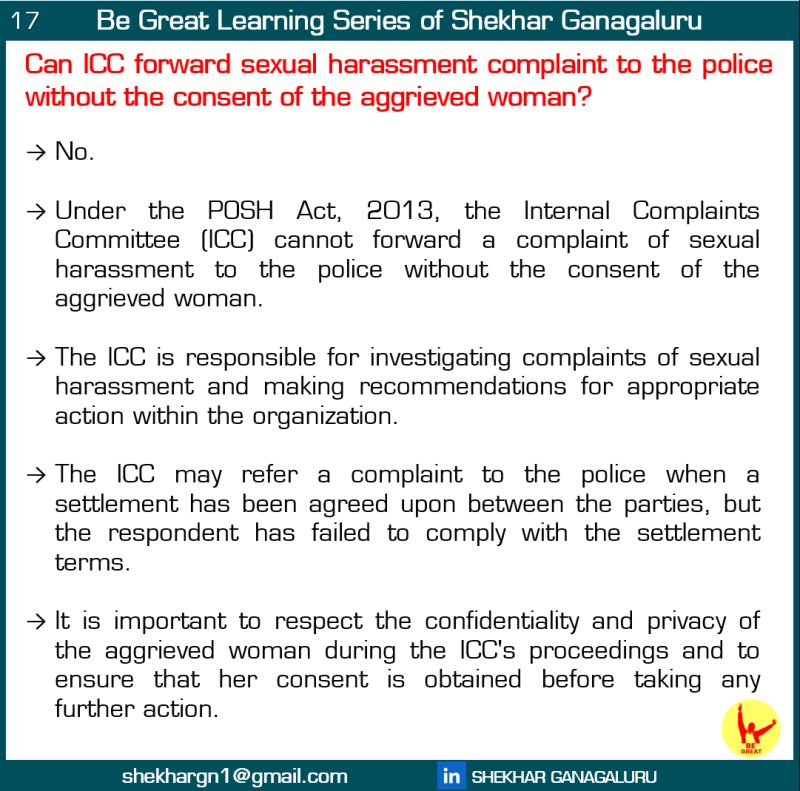
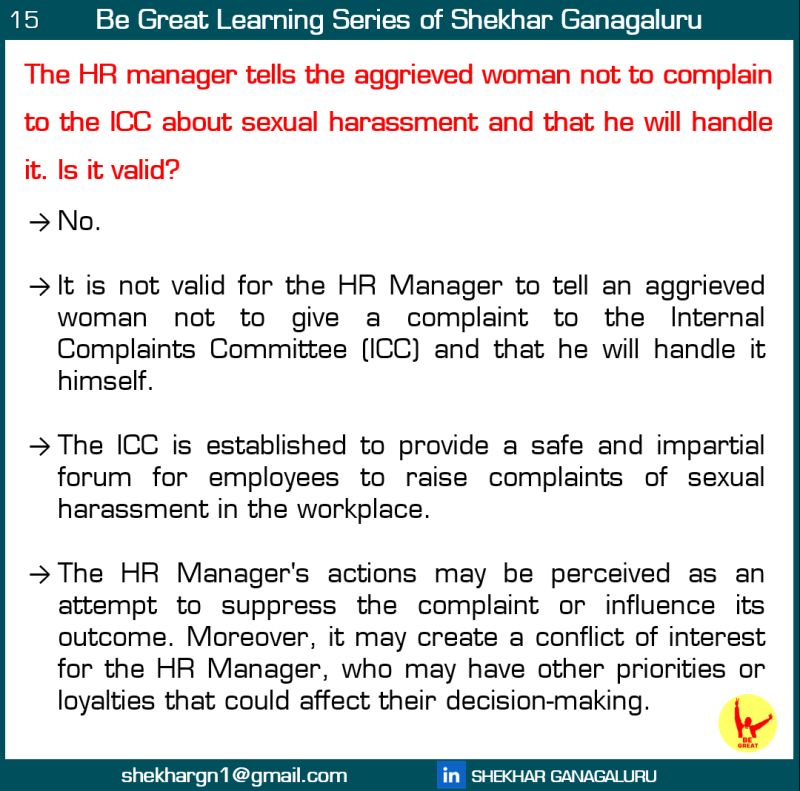
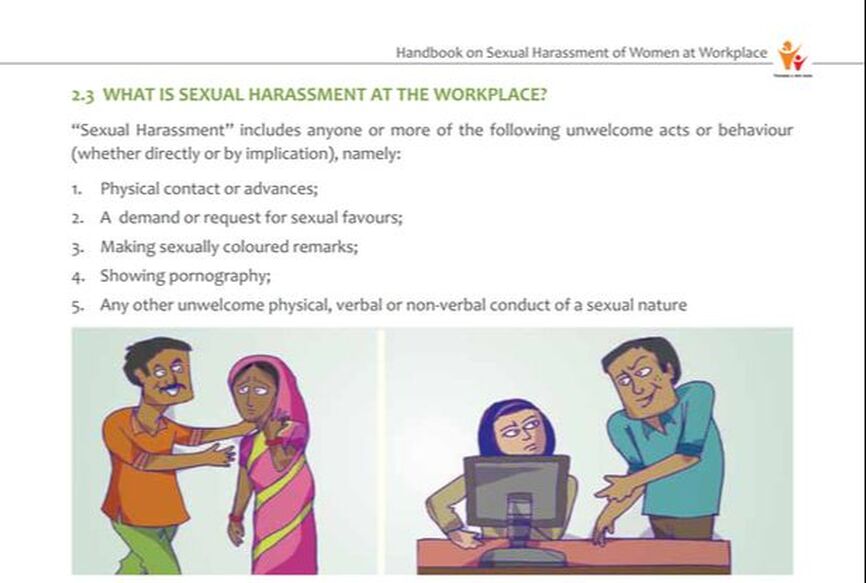
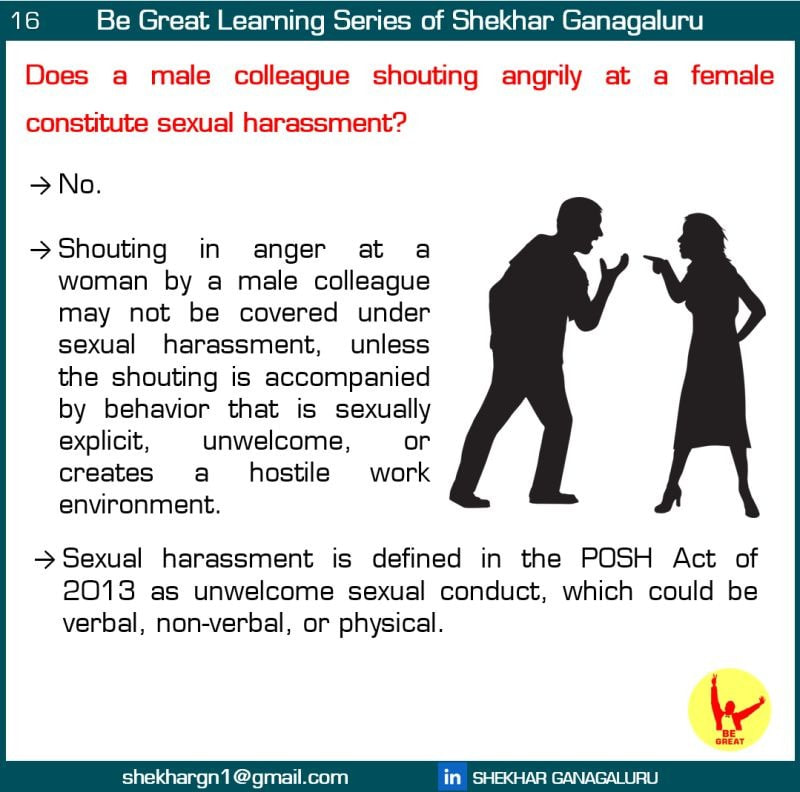












 RSS Feed
RSS Feed





